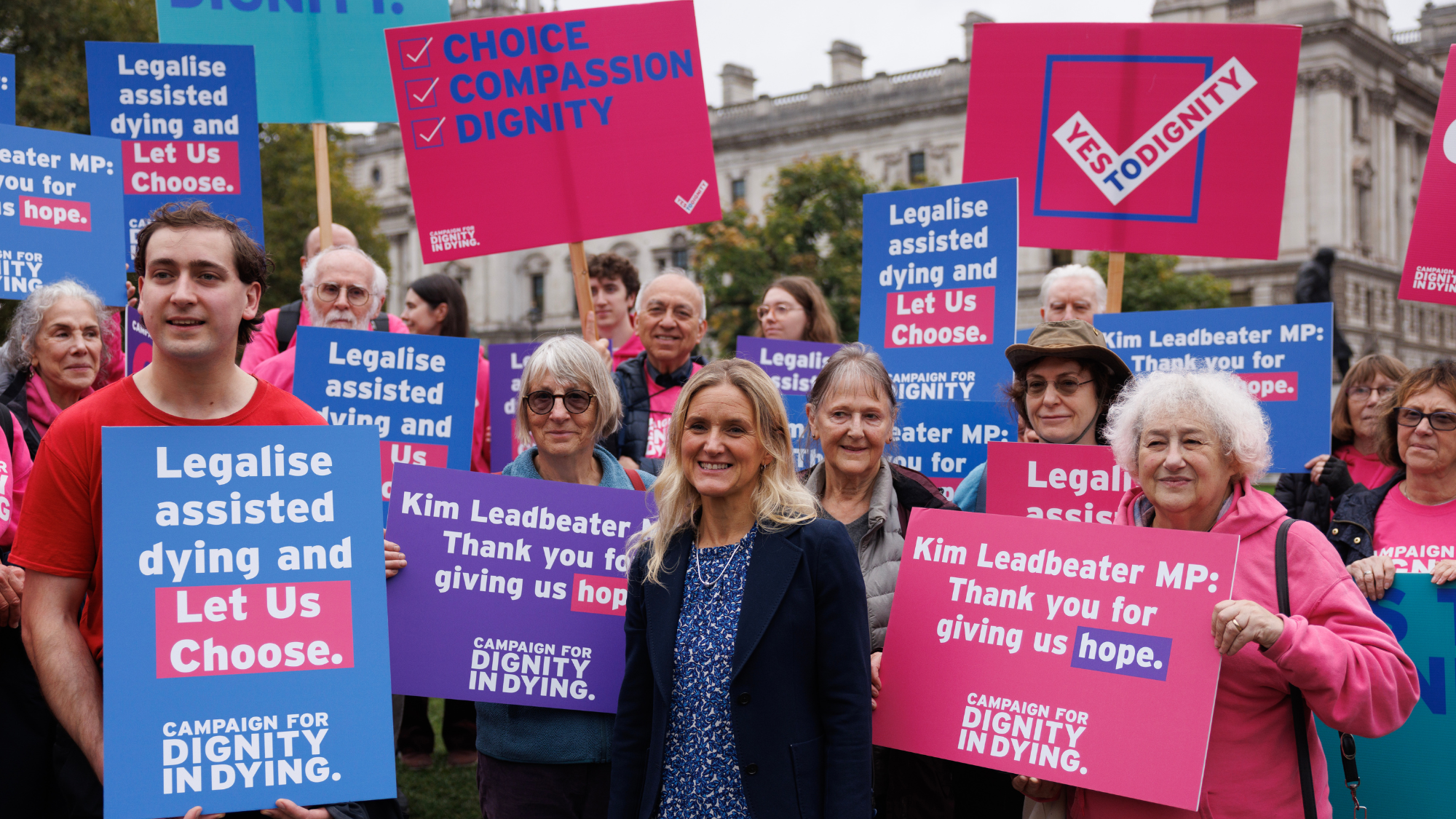‘Slapps’: the lawsuits that silence free speech
Inside the government’s plans to clamp down on use of courts by rich and powerful

A free daily email with the biggest news stories of the day – and the best features from TheWeek.com
You are now subscribed
Your newsletter sign-up was successful
What prompted this new plan? In a word, Ukraine. English libel law is notoriously friendly to wealthy claimants who wish to silence their critics. The issue of “libel tourism” – foreigners choosing to sue in London – has been acknowledged for decades. But a series of recent cases brought by Russian oligarchs has pushed the issue to the fore, along with the wider issue of London law firms helping to “launder” the reputations of shady clients from abroad.
Last month, the Department of Justice launched a consultation on “Slapps”, a US term which stands for “Strategic Lawsuits Against Public Participation”. These are defined as libel or privacy cases brought by wealthy companies or individuals, “where the primary objective is to harass, intimidate and financially and psychologically exhaust one’s opponent via improper means”. Such lawsuits, said the consultation paper, are “an abuse of the legal process” and “a threat to free speech within the law”.
How is English libel law friendly to claimants?
First, there is the issue of the burden of proof. Under English defamation law, there is a presumption that defamatory words – something said or written that damages someone’s reputation – are false, so the burden of proving that the words are true or otherwise defensible lies with the defendant. (In the US, by contrast, First Amendment protections for free speech mean the burden of proof rests with the claimant.)
The Week
Escape your echo chamber. Get the facts behind the news, plus analysis from multiple perspectives.

Sign up for The Week's Free Newsletters
From our morning news briefing to a weekly Good News Newsletter, get the best of The Week delivered directly to your inbox.
From our morning news briefing to a weekly Good News Newsletter, get the best of The Week delivered directly to your inbox.
The second issue is that defamation proceedings are so expensive. Even preliminary legal arguments can cost tens of thousands of pounds. The cost of a full trial can run into hundreds of thousands, even millions. Costs are largely paid by the loser. Understandably, this prompts many publishers to settle complaints, regardless of the merits of the case, and encourages many to simply avoid certain subjects so as to avert legal problems. Libel law creates a “chilling effect” on free speech.
How does this affect journalism?
Two recent cases illustrate the sometimes devastating effects of such suits. In 2020, Catherine Belton, a former Moscow correspondent, published Putin’s People, a widely acclaimed exposé of the criminal corruption of the current Russian regime.
After the Kremlin critic Alexei Navalny recommended the book last year, Roman Abramovich, three other Russian oligarchs and Rosneft, the Russian oil company, launched near-simultaneous suits against both Belton personally and her publisher, HarperCollins. Eventually, the cases were thrown out or settled following relatively minor corrections. No damages were awarded.
Yet the cases – which never even went to a full hearing – cost the publisher £1.5m. Tom Burgis, author of the book Kleptopia: How Dirty Money is Conquering the World, also published by HarperCollins, came under a similar attack from the Eurasian Natural Resources Corporation, a Kazakh mining company. A judge dismissed the case at a preliminary hearing this March.
A free daily email with the biggest news stories of the day – and the best features from TheWeek.com
What wider effects does this have?
All legal systems have to balance free speech with the protection of reputation. But even after a series of reforms to libel law, the UK tilts heavily towards the latter compared to other free countries; the US expressed its disapproval when the UK passed a law in 2010, making English libel judgments unenforceable in America.
In 2020, the Foreign Policy Centre think tank examined the pressures on investigative journalists around the world, and found that the UK was “by far the most frequent” country of origin for Slapp actions, issuing nearly as many as all the EU nations and the US combined. There’s no doubt this has led to self-censorship by UK publishers. Cambridge University Press declined to publish Putin’s Kleptocracy by the US political scientist Karen Dawisha, due to worries about litigation.
What’s the Government doing about this?
Foreign Secretary Liz Truss reportedly asked Government lawyers to find “literally any way” to crack down on Slapps last month. The consultation paper published by the Justice Secretary Dominic Raab, soon after, threw the kitchen sink at the problem in terms of potential solutions.
It mooted a series of new reforms to defamation law, including expanding the available defences, and requiring, as in the US, that claimants show “actual malice” (i.e. the defendant either knows the statement was wrong or was reckless). It also suggested putting a cap on recoverable costs and, most radically, proposed passing anti-Slapp laws, such as already exist in the US and Canada.
How might an anti-Slapp law work?
The consultation paper floats the possibility that, in Slapp cases, the burden of proof should fall on the claimant instead of the defendant: they’d have to prove the defamatory statement is not true. Caroline Kean, who represented Catherine Belton and Tom Burgis, argues that such laws should go further.
Judges should decide at the outset of a case whether it relates to public interest journalism – i.e. whether the individual or company is worthy of scrutiny. If so, the case should be halted and resolved by granting a prominent right to reply, and correcting any factual errors.
So can we expect progress?
Not necessarily. Reforming defamation has been a painfully slow process. Even coming up with a legal definition of a Slapp would be difficult. “One person’s Slapp case is another person’s legitimate attempt to defend their reputation and/or privacy rights,” says the legal commentator David Allen Green.
Many lawmakers are also chary of giving too much latitude to the British media, with its long tradition of privacy invasion and occasional recourse to illegality. Ironically, though, defamation law has never been effective at getting redress for normal people from the press, because of high costs. Libel is the archetypal rich man’s law.
-
 The Epstein files: glimpses of a deeply disturbing world
The Epstein files: glimpses of a deeply disturbing worldIn the Spotlight Trove of released documents paint a picture of depravity and privilege in which men hold the cards, and women are powerless or peripheral
-
 Jeff Bezos: cutting the legs off The Washington Post
Jeff Bezos: cutting the legs off The Washington PostIn the Spotlight A stalwart of American journalism is a shadow of itself after swingeing cuts by its billionaire owner
-
 5 blacked out cartoons about the Epstein file redactions
5 blacked out cartoons about the Epstein file redactionsCartoons Artists take on hidden identities, a censored presidential seal, and more
-
 President Trump: ‘waging war’ on Chicago
President Trump: ‘waging war’ on ChicagoTalking Point Federal agents are carrying out ‘increasingly aggressive’ immigration raids – but have sanctuary cities like Chicago brought it on themselves?
-
 Should Britain withdraw from the European Convention on Human Rights?
Should Britain withdraw from the European Convention on Human Rights?Talking Point With calls now coming from Labour grandees as well as Nigel Farage and the Tories, departure from the ECHR 'is starting to feel inevitable'
-
 Palestine Action: protesters or terrorists?
Palestine Action: protesters or terrorists?Talking Point Damaging RAF equipment at Brize Norton blurs line between activism and sabotage, but proscription is a drastic step
-
 School disputes: a police matter?
School disputes: a police matter?Talking Point Cowley Hill lodged a police complaint against parents who criticised its recruiting process for a new head
-
 The UK 'spy cops' scandal, explained
The UK 'spy cops' scandal, explainedThe Explainer Undercover police targeting activist groups conducted intrusive surveillance, with some even embarking on relationships under assumed identities
-
 Captain Tom: a tarnished legacy
Captain Tom: a tarnished legacyTalking Point Misuse of foundation funds threatens to make the Moore family a disgrace
-
 Assisted dying: what can we learn from other countries?
Assisted dying: what can we learn from other countries?The Explainer A look at the world's right to die laws as MPs debate Kim Leadbeater's proposed bill
-
 Smoking ban: the return of the nanny state?
Smoking ban: the return of the nanny state?Talking Point Starmer's plan to revive Sunak-era war on tobacco has struck an unsettling chord even with some non-smokers